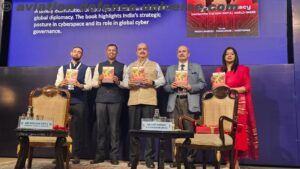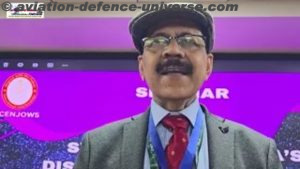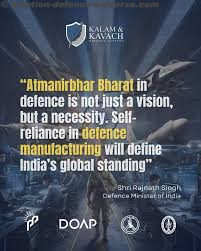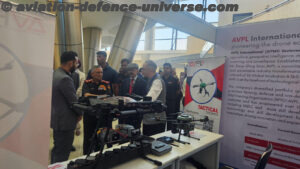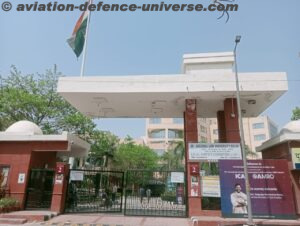- War, Words and Wisdom: How Military Literature Festivals Shape Strategic Thinking
By Sangeeta Saxena
New Delhi. 14 April 2025. The capital is set to host the second edition of Kalam & Kavach – Defence LitFest on April 15, 2025, at Ashoka Hall, Manekshaw Centre, Delhi. Organised by Pentagon Press and Partnered with (Centre for Joint Warfare Studies) CENJOWS, this unique literature festival will bring together military strategists, authors, defence personnel, policymakers, and thinkers to engage in powerful dialogues around national security, defence reforms and India’s strategic rise.
With the theme “Securing India’s Rise Through Defence Reforms”, Kalam & Kavach 2.0 aims to bridge the world of military intellect and literary expression, creating a platform where literature and defence discourse intersect. The event is expected to draw participation from top military officials, defence experts, scholars, journalists, and students alike, offering a full-day immersion into thought-provoking discussions and presentations.
The LitFest will feature book launches, panel discussions, and keynote addresses that delve into evolving national security dynamics, strategic challenges, and the reformative push under India’s defence ecosystem. It also aims to highlight India’s transformation from a major defence importer to a significant player in indigenous military production and policy innovation.
Kalam & Kavach continues to carve out a niche space that blends defence scholarship with storytelling — celebrating the stories, sacrifices, and strategic depth of India’s armed forces. The inaugural edition had set a strong precedent, and this year’s edition promises to deepen the dialogue around civil-military relations and the importance of narrative in shaping national defence awareness.
This is where strategy will meets scholarship. Military literature festivals serve as vital intellectual battlegrounds where strategic thought, national security narratives, and historical insights converge. Unlike traditional literary events, these gatherings bring together uniformed personnel, strategic thinkers, historians, policymakers, and civilians to engage in discussions that shape military doctrine and defence policy. Festivals such as Kalam & Kavach help bridge the gap between the armed forces and the civilian population by fostering a culture of understanding, dialogue, and national pride.
Such events play a key role in the creation and refinement of military strategies. Through panel discussions, book launches, and keynote addresses, they provide a platform for critical examination of past operations, contemporary security threats, and emerging warfare domains—cyber, space, and information. The exchange of ideas in these settings often goes beyond theoretical discussions, offering real-world lessons from the frontlines that can inform future reforms and policy shifts. These festivals are also instrumental in preserving the oral histories of veterans and translating them into written narratives for wider public engagement.
The Power of Pen is strong and that is why military voices matter in literature. Military literature authored by serving and retired defence personnel carries an authenticity and depth unmatched by external observers. These writings offer firsthand accounts of conflict, leadership in high-pressure environments, decision-making under fire, and the emotional and moral complexities of war. From memoirs and biographies to operational analyses and doctrinal critiques, such works provide invaluable insight into the functioning of military institutions and the challenges of modern warfare.
The importance of these literary contributions lies in their dual function—as repositories of history and as manuals of mentorship. When military leaders pen their experiences, they not only preserve critical events for posterity but also offer guidance to younger officers and scholars of strategy. Their reflections help decode battlefield tactics, leadership styles, geopolitical calculations, and lessons from failure—insights crucial for evolving doctrine and training future leaders.
Moreover, military-authored literature contributes to nation-building by enriching the national narrative with stories of sacrifice, innovation, and resilience. These works also help demystify the armed forces for the public, nurturing a greater appreciation for those who serve and the complexities they navigate. In this way, military literature becomes not just a cultural asset, but a strategic tool.
As India charts its future as a leading global power, platforms like Kalam & Kavach provide the intellectual scaffolding needed to support informed, strategic reform — through the powerful medium of literature.






































